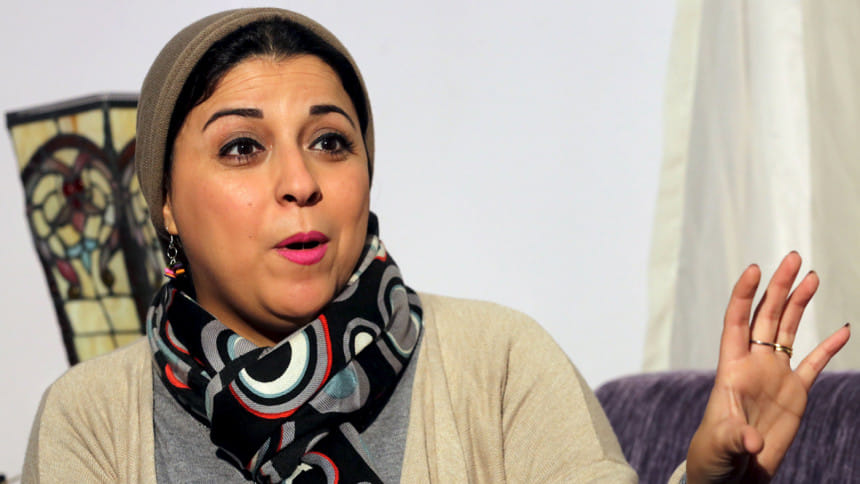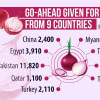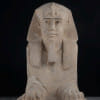Hero of Egypt's uprising feels rejected five years on

In 2011, activist Esraa Abdel-Fattah helped ignite revolution on the streets of Egypt and was nominated for a Nobel Peace Prize. Five years after the fall of autocrat Hosni Mubarak, she is shunned or insulted by Egyptians on those same streets.
"They say I am a traitor and foreign agent and that we are the people who destroyed the country. I hear it when I am passing people in the streets," said Abdel-Fattah. "Some people still ask "what was wrong with Mubarak?".
Abdel-Fattah and a small circle of fellow activists were once seen by many in Egypt as the best hope for an end to corruption and repression and the dawning of an era of free speech and respect for citizens by the state.
Nowadays, she cuts a lonely figure in her small apartment, hoping Egyptians will rise up again to demand democracy despite the fiercest crackdown on dissent in the country's modern history.
"I don't know if people will take to the streets tomorrow, or next year, or the following year," the 39-year-old journalist told Reuters at her home in the Sheikh Zayed suburb of Cairo.
"The revolution is people demanding freedom, bread, justice, and dignity. People will keep demanding them."
Abdel-Fattah helped organise the demonstrations that began on January 25 and ended Mubarak's 30-year rule 18 days later, only to see Egypt return to what human rights groups call an authoritarian state after years of upheaval.
The Muslim Brotherhood was elected after Mubarak's departure. A year later the Islamist movement was overthrown by then military chief Abdel Fattah al-Sisi, following mass protests against its turbulent rule.
Esraa Abdel-Fattah had co-founded the April 6 Youth Movement, which became a driving force of the 2011 street protests.
Known as "Facebook Girl", she and other social media activists launched a web page that urged young people to join a strike to support workers in an industrial town.
She was arrested as a result but not held for long.
Mass arrests, clampdown on protests
Abdel-Fattah said it does not pay to be as daring in Egypt under Sisi, who went on to become elected president, the latest man from the military to rule.
Security forces have arrested about 40,000 political activists, Islamists and liberals alike, under Sisi, human rights groups estimate.
Protesting without police permission is a crime, a clearer penalty than the situation during Mubarak's rule, one of the reasons Abdel-Fattah gives for not planning any demonstrations for the foreseeable future.
Many Egyptians, craving stability after years of political turmoil, backed Sisi's crackdown, described by the government as an effort to stamp out Islamist militant terrorists.
"Anyone who protests is locked up. Even people who write their opinions on Facebook or Twitter are questioned about their writings," she said.
The powerful state media brands Abdel-Fattah and others who were instrumental in the 2011 demonstrations "Enemies of Egypt". Those who are not behind bars feel like pariahs.
Abdel-Fattah has not lost hope, however.
"No one in the world knew that the revolution of January 25, 2011 would look like it did. I see in the eyes of younger generations the idea and dream of a revolution is still there," she said.
"I am ready to play any role, big or small, to complete this revolution, I could be jailed for a tweet, or anything I write."
She believes the relentless pressure on government opponents will ultimately backfire and generate new calls for freedoms.
"This can't go on, the widening of detentions of the innocents. You have families that are destroyed," said Abdel- Fattah.
"We also have people who are arrested without charge. They can stay in jail up to three or four years. I don't believe this can go on. The revolution lives inside us. It will come," she said.
She does not need to look far for a reminder that Sisi appears firmly in control. Beside her is a handmade poster given to her by friends to cheer her up. It reads: "Let Esraa Fly".
Pro-government Egyptians say she and other activists received funds from abroad to incite protests and conspire against the state. They deny the allegations, which have not been tested in court, but Abdel-Fattah is banned from leaving Egypt.

 For all latest news, follow The Daily Star's Google News channel.
For all latest news, follow The Daily Star's Google News channel. 








Comments